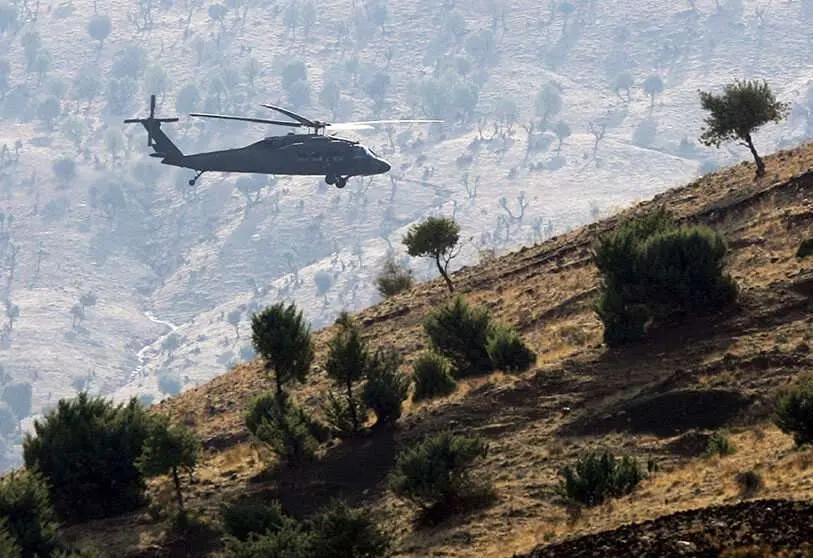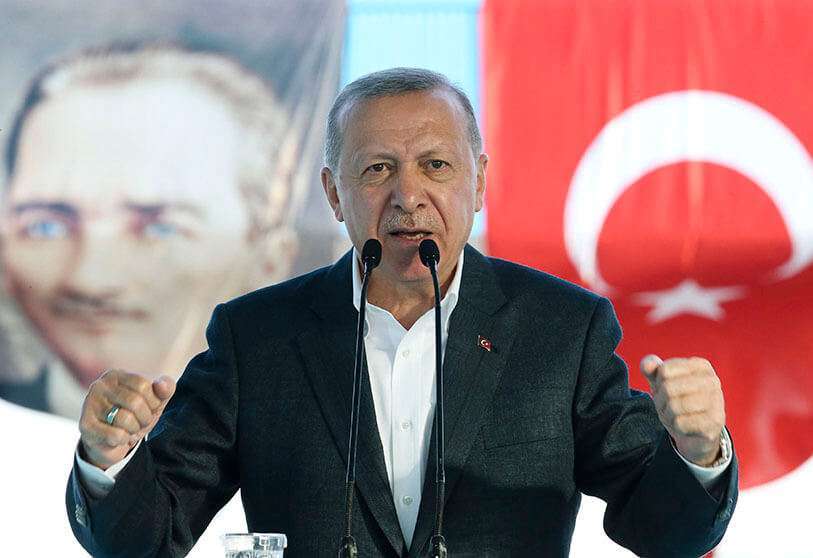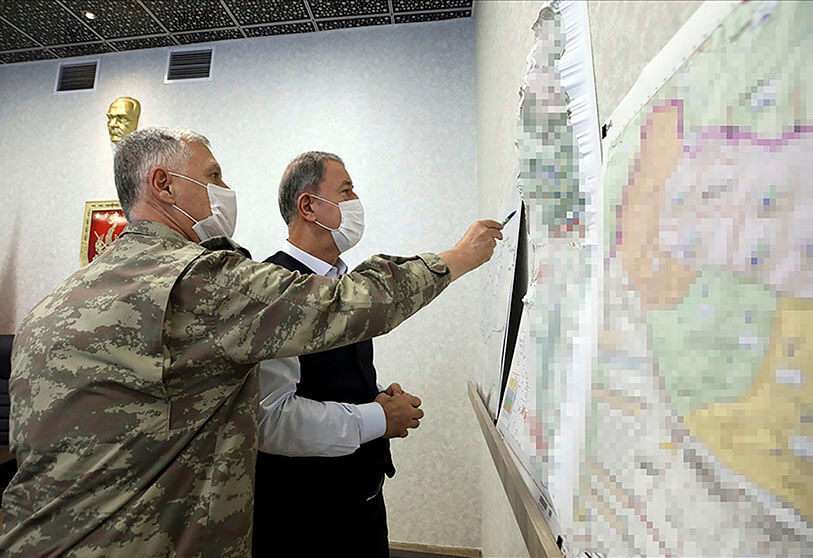Ankara bombs northern Iraq in its fight against the Kurds

The president of Turkey, Recep Tayyib Erdogan, continues his personal struggle against the Kurds even if he has to attack territories outside his borders. In this case it is again Iraq, the Turkish president has invited the Iraqi Prime Minister, Mustafa Al-Kazemi, to a dialogue on the threat of Kurdish terrorists in both countries.
Kurdish sources have informed this Friday that several Turkish planes violated the Iraqi airspace again and bombed a border village. The attack came after the Turkish ambassador to Iraq, Fatih Yildiz, announced that his country had sent an official invitation to Al-Kazemi to visit Turkey.
Yildiz's statements were made during a visit to the Iraqi national security advisor, Qasim Al-Araji, where they discussed the bilateral relations between the two countries and the ways of improving them for their common interests. Al-Araji stressed that "Iraq's supreme interest requires that our relations be balanced with everyone, and we hope that the current stage will witness greater security and stability in the region and the whole world".
For his part, the Turkish ambassador said that "President Erdogan considers the Turkish-Iraqi relations to be of great importance and wishes to visit Iraq as soon as the conditions are created". But before that, he has preferred to invite Al-Kazemi to Turkey in order to further strengthen these relations and to discuss the issue of the Kurdish threat.

Although Erdogan justifies the attacks under the umbrella of the struggle against the (Kurdistan Workers' Party) PKK, which is internationally considered as a "terrorist organisation", Iraq calls for a stop to these incidents and denounces that Turkey is violating the territorial sovereignty.
It is not the first time that it does this and it does not seem to be the last time. If it is about the Kurds, Erdogan has no problem in attacking Syria or IraqK . One week ago, four artillery shells fell on the village of Orman in the district of Kani Masi, Amadiyah, in the governorate of Dohuk, Iraq. Two of them fell within seventy meters of several residential houses putting the lives of civilians at risk.
This bombing coincided with a visit of Prime Minister Al-Kazemi to the region of Northern Iraq, which many consider and call "Kurdistan". Specifically, the visit took place in the district of Zakho, in Dohuk, to discuss Iraqi sovereignty in the area with the president of the regional government, Masrour Barzani.
It should be noted that Turkey has launched regular attacks against the PKK in Iraq for more than two months, because it considers that the Iraqi government and the administration of the Kurdistan region in Iraq have not taken any measures to fight the group.
From Baghdad, they do not stop condemning these attacks and in the next talks, the Turkish military campaign that invades and goes beyond the international borders will be on the table.
The Kurds are an Indo-European community that settled in southern Anatolia around the 10th century BC. They have been fighting for centuries for self-determination as a state with its own borders and internal competences.
The existence of the Kurdish people has always been recognised, but there were no borders to delimit it. Until, after the First World War, with the Ottoman Empire, a cartography was made that delimited borders of what would be the territory of Kurdistan.
This map was never consolidated, as with the Treaty of Lausanne in 1923 the territory was divided between Turkey, Syria, Iraq, Iran and the USSR (what would become Armenia today).
Since then, the Kurdish people have fought for their self-determination against the different regional governments. Throughout the history, there have also been clashes between the Kurds themselves that do not agree (civil war in Iraqi Kurdistan from 1994 to 1997).
During the Iraq war (2003), most of the Kurdish politicians supported the USA with the idea of achieving more autonomy after the overthrow of Saddam Hussein. This led to the creation of the autonomous federal entity of "Iraqi Kurdistan", an autonomous body recognized by the Iraqi government.
There has been a clash between the Erdogan government and the Kurds in Turkey (as well as Syria and Iraq) for centuries. Today, the Kurds are about 20 per cent of the population in Turkey.
The Kurdish people have always received a hostile treatment by the authorities, arrests, territorial transfers, banning of the Kurdish language, abolition of all names of the Kurdish ethnicity... This has caused so much hostility that the birth of the PKK and its armed arm HPG (People's Defence Force) started an armed clash with the national government.
Since then, according to the BBC, more than 40.000 San people have been killed and hundreds of thousands have been displaced from their homes.
In 2013, the PKK agreed a ceasefire with Erdogan, but due to several attacks by the Islamic state in 2015 and the 2016 coup d'état, the confrontation has been reactivated.
Since then, Turkey is conducting a war against terrorism in which it brings the PKK and the Islamic state to the same place. Moreover, Erdogan is extending his point of view to the Kurds outside his borders such as the YPG (People's Protection Units) in Syria and the autonomous territory of Iraqi Kurdistan.









